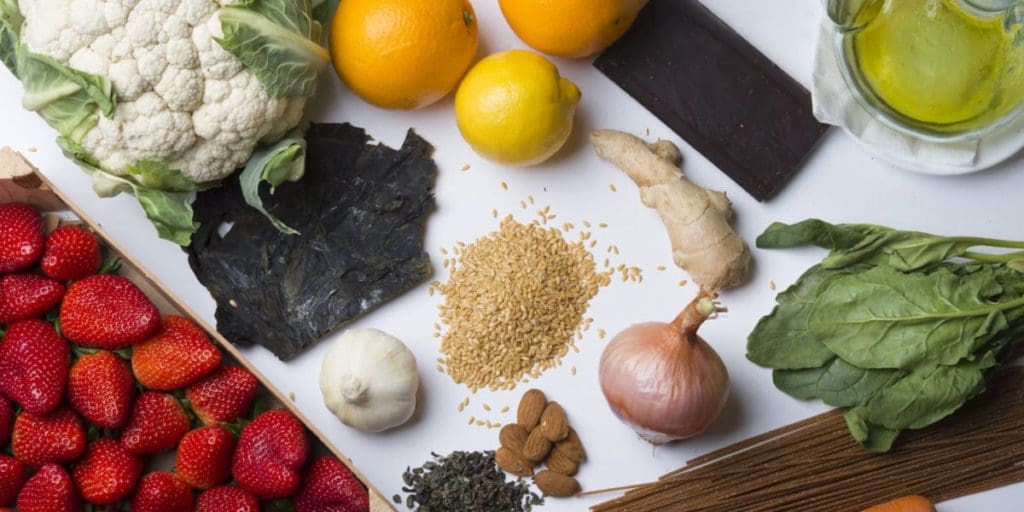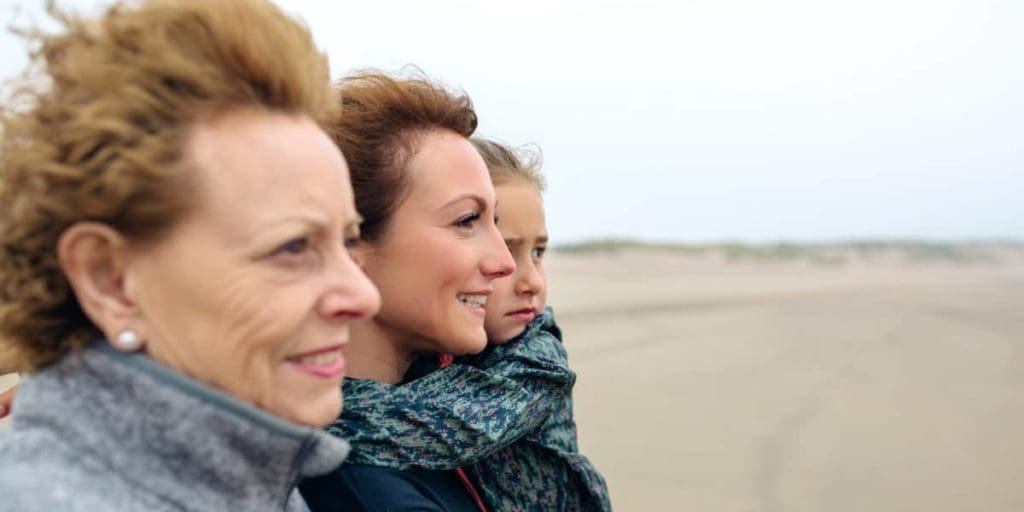Breast Cancer Awareness Overview
Serena Williams reminds us to touch ourselves. The Centers for Disease Control remind us that breast cancer can happen to younger women. The Physicians Committee for Responsible Medicine reminds us that orange is the new pink for breast cancer awareness month.
Breast Cancer Awareness Month greets us with many valuable messages and campaigns, and each one is centered on one key statistic: breast cancer is the second most common kind of cancer in women. That means about 1 in 8 women born today in the United States will get breast cancer at some point. And that means it’s highly likely you or someone you know has been or will be personally affected by this disease.
The good news is that women can beat this disease. While breast cancer survival rates don’t tell the entire story, they do paint an important picture: women have a strong chance of survival when cancer is found and treated early. Mammograms and self-exams are crucial to early detection, thus crucial to survival.
To celebrate Breast Cancer Awareness Month, let’s dive into the well-documented risk factors, lifestyle options that can help you and your loved ones reduce the risk of breast cancer.
“rather than getting rid of the troublemakers – meat, dairy products and fried foods – may not offer the protection many had hoped.”
Breast Cancer: Diet
The foods you put into your body are directly associated with an increased risk of breast cancer. Your diet can “play a role in both promoting and inhibiting breast cancer development,” according to recent research. But it’s not just what you put in your body; it’s also what you stop putting in. Adding an apple a day and other nutritionally dense plant-based foods “rather than getting rid of the troublemakers – meat, dairy products and fried foods – may not offer the protection many had hoped.”

So what should you eat and what should you avoid? There are as many answers to that as there are medical scholars, nutritionists, healthcare providers and cancer specialists, but common ground preventative recommendations include the following:
Foods to eat include:
- Foods rich in beta-carotene (3 – 6 milligrams each day)
- Healthy fats such as nuts (25 walnuts have the antioxidant equivalent of 8 grams of vitamin C)
- Nutritionally dense foods from plants (5.5 servings of fruits and vegetables each day)
- Foods rich in fiber such as dried beans and whole grains (3-4 heaped tablespoons a day)
Foods to avoid include:
- Dairy products, particularly full-fat dairy
- Animal protein, particularly processed meats
- Foods high in cholesterol and saturated fat such as eggs
For Breast Cancer Awareness Month and all year long, learn more about the Nutrition Rainbow and the power of plant-based foods here. And learn more about how food helps to fight cancer here.
Physical activity
A sedentary lifestyle is not a new concern for the healthcare community. Our doctors and nutritionists and personal trainers and massage therapists have long encouraged us to maintain an active lifestyle as part of a well-rounded effort to maintain our health and extend our longevity. So it’s no surprise that physical activity is important to reducing our risk for cancer as well.
Research shows that women who are physically active have a lower risk of breast cancer than those who are not. This may be due to activity lowering the levels of hormones and of growth factors that are associated with cancer development and progression. If you’re ready to start incorporating increased physical activity into your daily routine, check out the types of exercises the Centers for Disease Control recommends for your age and health condition by clicking here.
Breast Cancer Awareness Month: Weight
Managing your weight is an important factor to your overall health as well as a reducing your risk to a number of conditions such as diabetes, heart disease, fibromyalgia and some forms of cancer.


Being overweight or obese – particularly after menopause, increases your risk of developing breast cancer. However, the direct link between managing your weight and reducing your cancer risk is not as simple as it may sound. According to the American Cancer Society, “while studies have found that excess weight is linked with an increased risk of breast cancer in women after menopause, it does not seem to increase the risk of breast cancer before menopause. The reasons for this are not clear.” That doesn’t change their recommendation to eat a balanced diet and engage in consistent physical activity to manage your weight though.
The American Cancer Society recommends you stay at a healthy weight throughout your life and avoid excess weight gain by balancing your food intake with physical activity.
Breast Cancer & Age
The risk for breast cancer increases with age. Most instances of breast cancer are found in women who are aged 55 and older. Because of this, the American Cancer Society varies its recommendations for cancer screenings by age. See what is recommended for your age by clicking here.
Breast Cancer Awareness & Family History
If your mother, sister, or daughter has a history of breast cancer, that doubles your risk of developing the disease. If you have multiple family members on either side who have a history of it, that increases your chances of developing it. Also, if you have a first-degree male relative with breast cancer, that raises your risk.
Breast Cancer Awareness & Genetic Mutations
Approximately 5% to 10% of breast cancer is hereditary. This means that if cancer runs in your family that it could be caused by genes inherited from either parent. These genes inform and instruct your body on a variety of traits you have. Two of these genes are crucial to your fight against breast cancer: the BRCA1 and the BRCA2 genes.
The BRCA1 and BRCA2 genes fight hard to suppress tumors and help to keep cells under control. But when a mutation occurs in one of these genes, they can’t fight normally, leaving your without their protection and raising your risk for breast cancer, among other types of cancer. To learn more about BRCA genes as well as genetic testing, insurance costs and information about who should have genetic testing, click here.

Reproductive History
Your risk of developing breast cancer is related to your exposure to hormones that your ovaries produce. Reproductive factors such as early onset of your period, late onset of menopause, later age for your first pregnancy and never giving birth are associated with a higher risk of breast cancer, as those factors increase your the length of your exposure to ovarian hormones and/or the levels of said exposure.

Keep the Breast Cancer Awareness Month Momentum Going All Year Long:
- Take stock of the risk factors above and take charge of your lifestyle and your health.
- Pledge to join the #ITouchMyselfProject by getting to know your breasts and sharing your experience on social media.
- Learn more about screenings recommended for your age range.
- Follow the latest news and updates on cancer research and cancer resources.
- Support friends, family members, colleagues and others in your community who are personally affected by the disease.
What changes to your lifestyle are you ready to make for Breast Cancer Awareness Month?
Let us know in the comments below!
Have a topic related to breast cancer you’d like to see us research and discuss?
Let us know by emailing us at info@painresource.com.
Are you on Facebook?
Join our online community by clicking here.





